Crossing Divides - Immigration: Is Britain becoming less anxious?
- Published
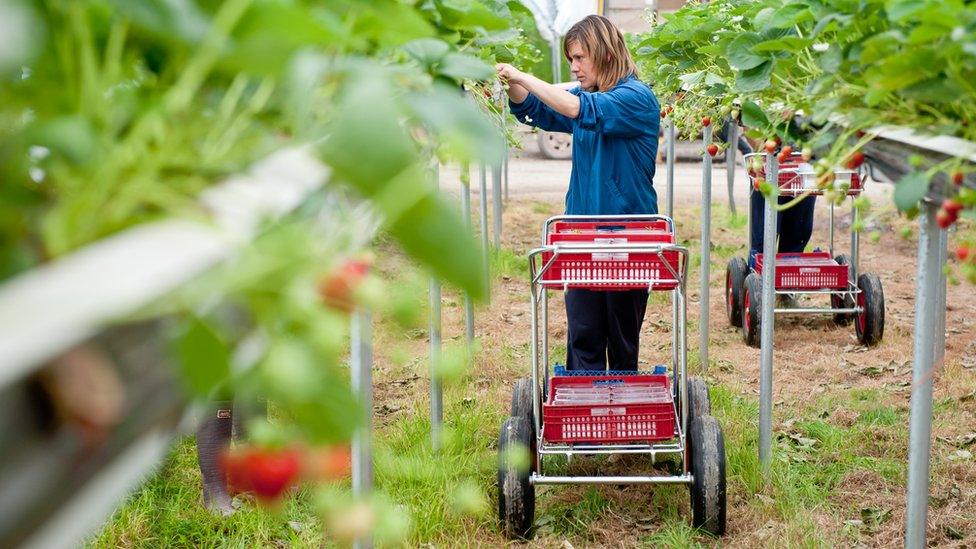
Something remarkable appears to be happening when it comes to public concern about immigration - British attitudes appear to be undergoing a turnaround.
Where once immigration was seen as the biggest problem for the UK, a negative force on national life, now it barely registers on the list of voter concerns, with polls suggesting increasing numbers believe it has had a positive impact on Britain.
Emilia's story
For Emilia Koziol-Wisniewski, one of the first Polish workers to come to the UK after EU expansion 15 years ago, the 2016 referendum result was a low point.
"After the referendum, I was crying for days because we moved here to make our life here. Our home is here," Emilia told me.
Emilia started a successful Polish food business with a factory in the small Herefordshire village of Marden.
But since the Brexit referendum campaign, she says, she has experienced abuse and racism.
"The comments were just vile, 'Deport them', 'Get rid of them'," Emilia tells me. "I think the Brexit referendum empowered people to say certain things."
In February, Marden Parish Council had to make a public apology for a racist remark directed at the local Poles by one councillor during a meeting.
All the parish councillors have since undergone equality and diversity training.
But there are increasing signs of another, more positive, point of view on immigration in Marden.
"On the one hand, after the referendum, we had people who would be nasty in their comments.
"And then we would have people who would come to us and say, 'It's not in my name. I do apologise on behalf of my nation. I welcome you here,'" says Emilia.
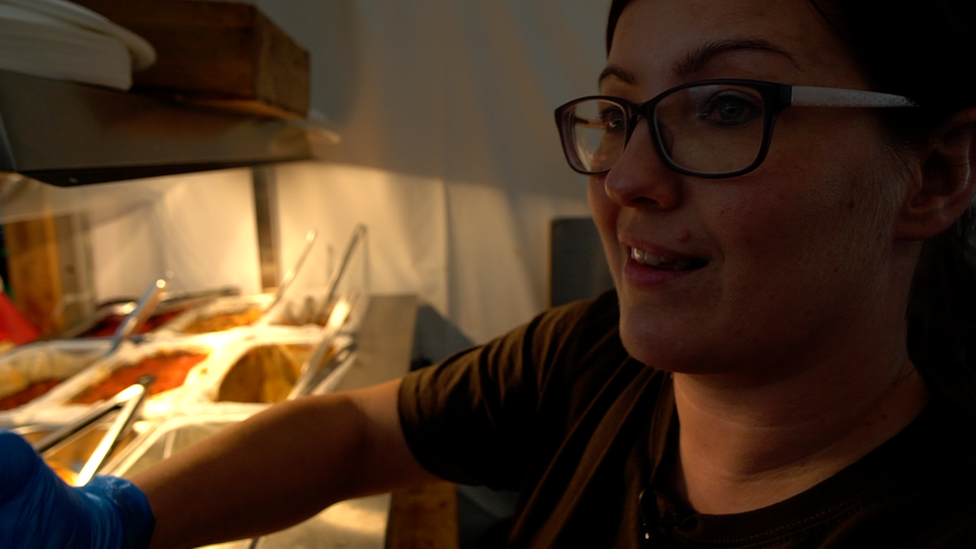
Emilia Koziol-Wisniewski says some comments have been vile but others are welcoming
Parish clerk Alison Sutton says the village has many residents originally from other countries "who live harmoniously in a large rural parish".
She describes the racist remark as an isolated comment "which, whilst misguided, was meant as a compliment about Emilia's entrepreneurship and hard work".
Changing attitudes?
In April, a regular Ipsos Mori survey for the BBC's Crossing Divides season found immigration was a concern for 11% of people - the lowest level since 2001.
While in March, an earlier Ipsos Mori poll for the season, external - which focuses on bringing people together in a fragmented world - found that British adults expressing positive views about immigration's impact outnumbered those with negative views.
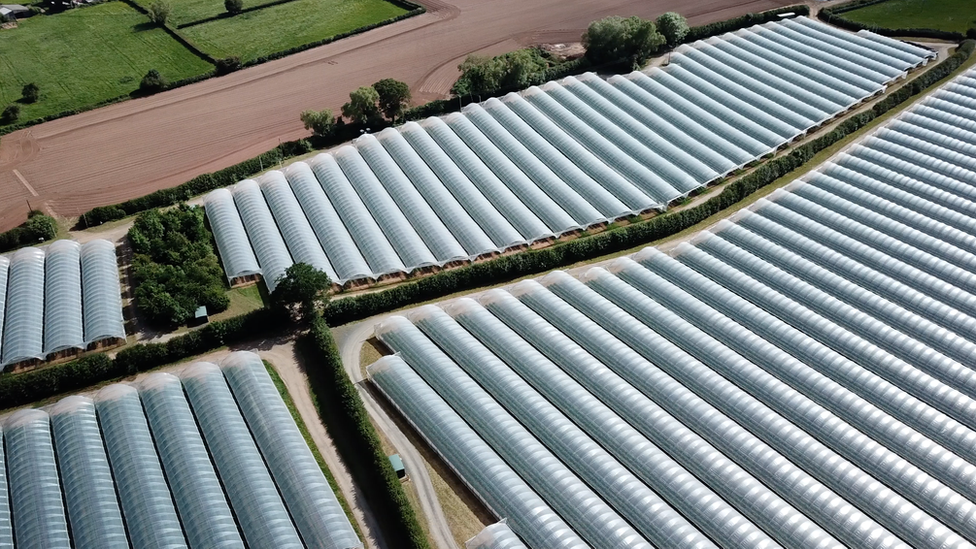
In Marden 1,500 Eastern Europeans help pick 8,000 tonnes of fruit each year
The subject of immigration was not a big focus in the recent European elections.
That may be because political parties recognised how anxiety has dropped away.
So, what has happened? If the Brexit debate gave voice to the cultural anxiety of communities unused to foreign arrivals, there has been an even greater shift in attitudes in the other direction.
As the arrivals of the past 15 years have integrated, so general concerns about immigration have subsided.
Hostility 'dying away'
Police had reported a spike in race hate crimes in Herefordshire, and in 2012 and 2013, Welcome to Hereford road signs were defaced to read "Poland".
Marden is also home to Britain's largest strawberry farmer, S&A Produce, which employs about 1,500 Eastern Europeans to help pick 8,000 tonnes of fruit each year.
The migrant workers in Marden are housed in a caravan park behind high hedges, but there are now efforts to encourage integration with the local community.
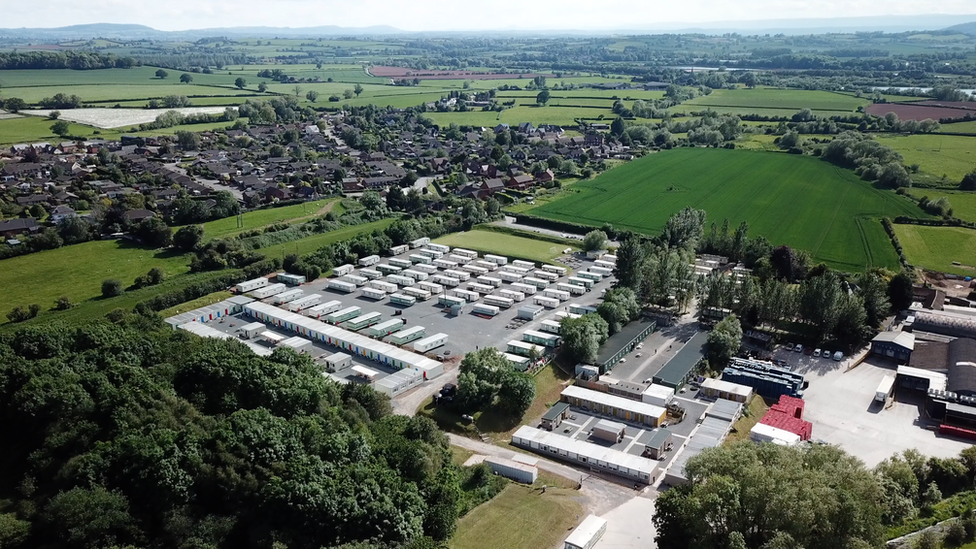
The migrant workers live in a caravan park but are being encouraged to integrate
"We should start to refer to people as guest workers rather than economic migrants because as guests of our business they're helping to make us a success and make the community a success," says group managing director Peter Judge.
"We look to engage our staff to help in the local communities. Our workers refurbished a cricket pavilion and they volunteered to do this freely because they value being part of a community."
The strawberry farm has invited a local English language teacher, Hugh Morris, to help migrant workers integrate into the British way of life.
"I sense there's a tilting point where we've actually become more accepting," Hugh suggests.
"We're assimilating Eastern European workers into the community and it's important that this continues. In the beginning there was a lot of hostility but now that's died away."
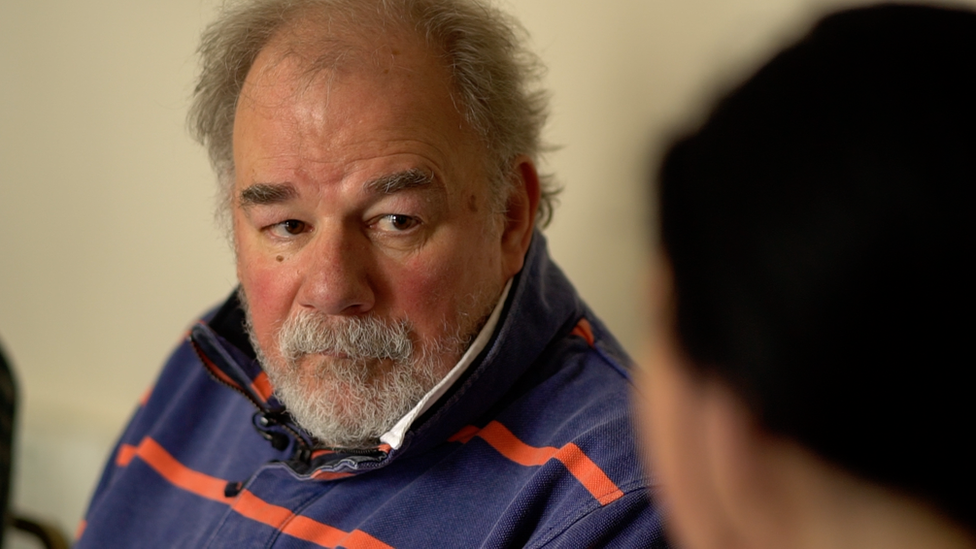
English teacher Hugh Morris says initial hostility to the migrant workers is dying away
Hereford council has also decided to act to reduce local anxiety about EU migrants. It recently forged a twinning relationship with the Polish town of Jaworzno, and is working with local schools to remind people how the area was home to many Polish servicemen during World War Two.
"We feel that it is really important that we keep that friendship and the link going because we're living in uncertain times when nobody knows what's going to happen down the line," Mayor Kath Hey says. "The little bits we can do within the city are fostering that real sense of community."

Polish service personnel were stationed in Herefordshire in the 1940s
That sense of shared community is vital to reducing tensions.
If foreign arrivals fail to assimilate, they will remain outsiders.
That is why there is some concern at government plans to require all but high-earning migrants to leave within a year of arriving, making it unlikely foreign arrivals will put down roots and integrate.
The lesson from Herefordshire is that the key to cohesion is for people from all backgrounds to meet and to mix.
BBC Crossing Divides

A season of stories about bringing people together in a fragmented world.
- Published4 March 2019
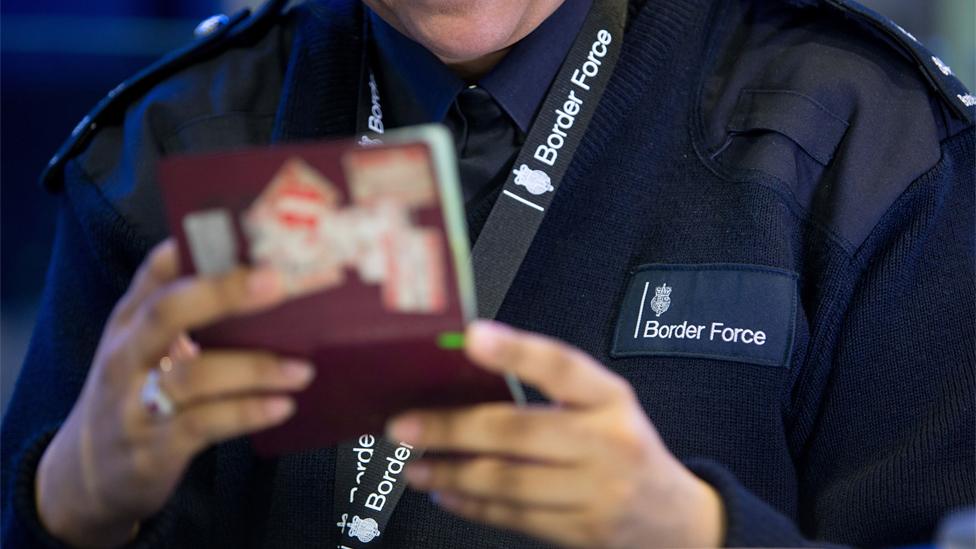
- Published28 February 2019
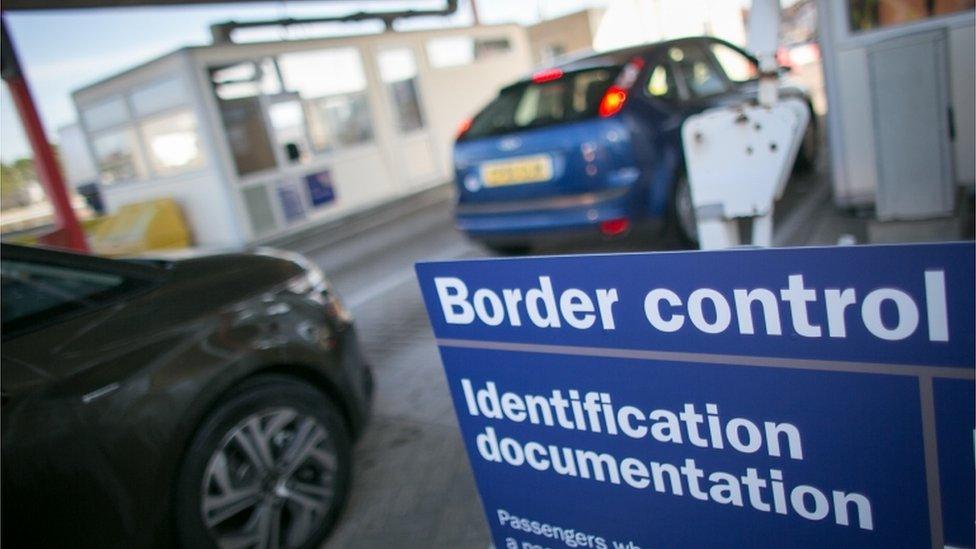
- Published19 December 2018

- Published19 December 2018
